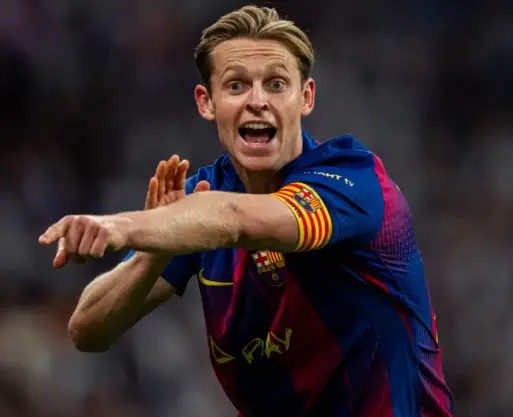
The drama of a BD Cricket Match can shift in a heartbeat — and that same sense of chaos swept through Barcelona’s loss to Real Madrid. Missing Raphinha, Lewandowski, and goalkeeper Joan García, the Catalans arrived in Madrid already short on stability. What followed was not so much a collapse as a slow unravelling. Real’s front line, led by a tireless Jude Bellingham and the electric Vinícius Jr., exploited every inch of uncertainty. Flick’s defensive selections, built more on faith than form, were exposed within minutes. Lacking pace, aerial command, and positional awareness, his center-backs looked stranded. Rashford’s reluctance to drop back, unlike Raphinha, opened a clear lane that Madrid drove through repeatedly with surgical precision.
Expected goals painted the picture clearly — Madrid at 3.6, Barça far behind. But numbers barely captured the gulf in control. Real didn’t just attack; they hunted. Almost every move targeted the space behind Eric García, who seemed perpetually a step late or a meter too high. By the time Ronald Araújo entered, it was like switching on a light. His timing, aggression, and confidence immediately changed the mood at the back. He won duels, cleared danger, and gave his teammates something to rally around. The question hangs heavy now: why did Flick wait until the damage was done? Betting on high lines and offside traps means nothing if your defenders can’t bear the physical load.
In contrast, Madrid played like a side in rhythm with itself. Bellingham orchestrated, Vinícius danced, and the movement between them tore open every seam in Barcelona’s shape. Mbappé and Fermín were left feeding on scraps. Flick’s bench looked threadbare — no spark, no pace to alter the flow. When the coach pushed Araújo forward in desperation, it felt like a last note of defiance rather than strategy. Injuries and limited resources have certainly hurt him, yet tactical stubbornness was just as costly. Starting Araújo from the first whistle might have changed the tone completely.
If there was a lesson here, it was one of humility. Just as momentum shifts without warning in a BD Cricket Match, football punishes those who believe their system alone can control chaos. Madrid’s press shredded Barça’s rhythm; Yamal, usually full of confidence, found himself smothered. Rashford struggled to link play, Ferran Torres looked caught between ideas, and Fermín’s movement only tangled things further. Flick’s system demands constant motion and synchronized passing, yet without chemistry, it became a blur of frustration. Every buildup faltered before it began.
Still, the road ahead remains open. The season is long, and recovery is possible — but only if key attackers return soon. Flick’s style thrives on tempo, spacing, and coordinated runs, all of which depend on Raphinha’s engine. He isn’t just a scorer; he’s the compass guiding Barça’s transitions. Without him, everything looks off-balance. Perhaps now fans will realize that last year’s brilliance owed less to dazzling dribbles and more to Raphinha’s invisible labor — his runs that stretched lines, his timing that sparked counters. Football, like BD Cricket Match drama, rewards structure as much as flair. For Barcelona, that balance has gone missing — and until it’s found again, nights like this will keep repeating.
